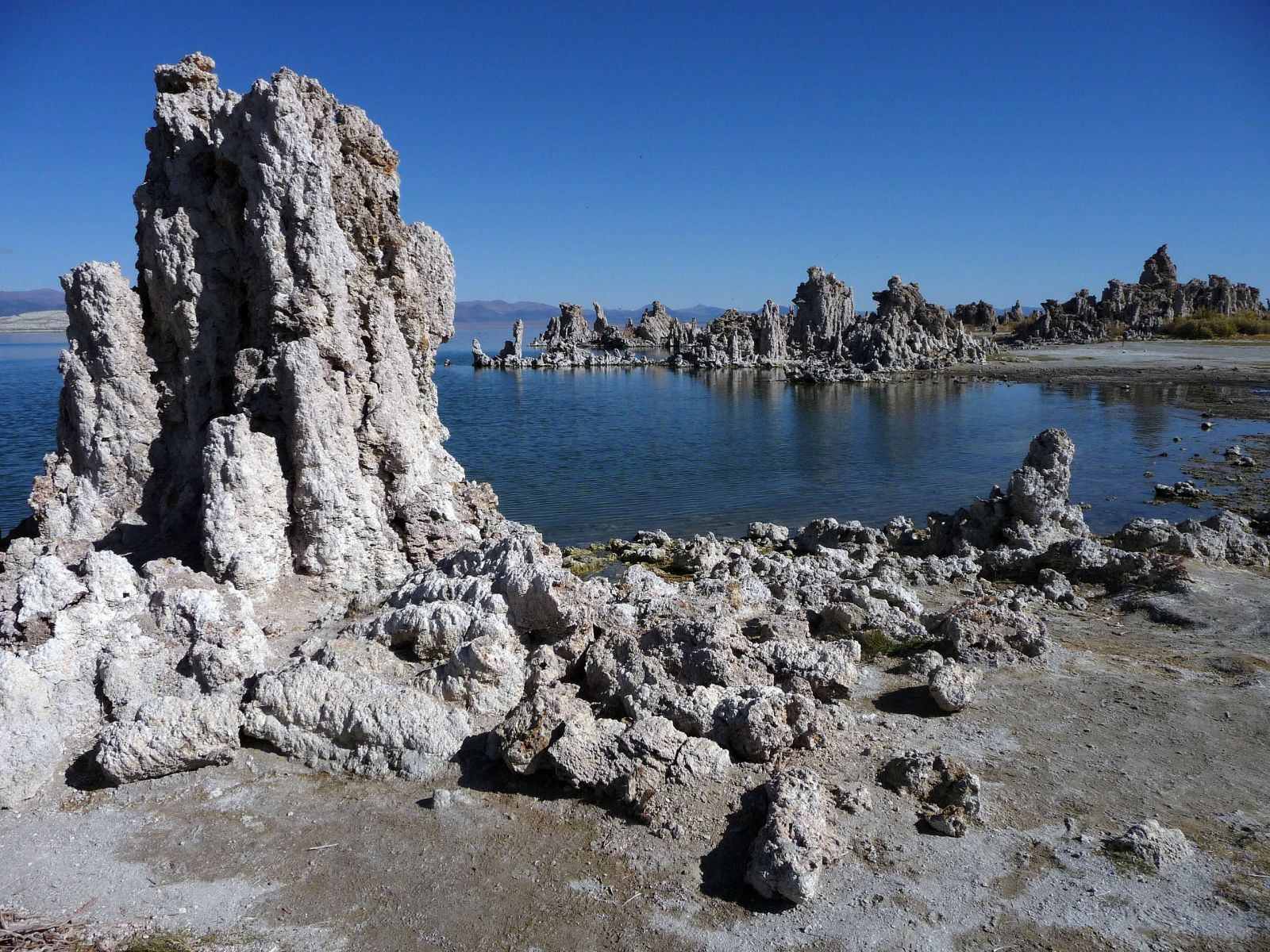Darwin may have been wrong about the origin of life, here's why 🌍
Follow us on Google News (click on ☆)
Phosphorus is a key element for life, present in DNA, RNA, and ATP. Its scarcity on Earth's surface poses a puzzle: how did early life forms access it in sufficient quantities? Experiments show that prebiotic reactions require phosphorus concentrations much higher than those naturally available.

Formations at Mono Lake
Image Wikimedia
Craig Walton, a researcher at ETH Zurich, proposes a solution. Large soda lakes, like Mono Lake in California, lose water only through evaporation. This mechanism allows phosphorus to accumulate, creating an environment favorable for the emergence of life. These lakes offer chemical stability impossible in smaller basins.
Small lakes cannot maintain sufficient phosphorus levels over the long term. Life would quickly deplete this essential resource. In contrast, large lakes benefit from a continuous supply of phosphorus from rivers, offsetting losses due to biological activity.
Mono Lake perfectly illustrates this phenomenon. With an area twice that of Lake Zurich, it maintains high phosphorus concentrations, supporting rich biodiversity. This chemical stability makes it a model for understanding prebiotic conditions on early Earth.
This theory diverges from Charles Darwin's idea, who imagined life emerging in small warm ponds. Walton and his team emphasize the importance of large soda lakes, capable of sustaining both chemical reactions and early life forms.
Walton's research, published in Science Advances, opens new perspectives on the origin of life. It suggests that large soda lakes, with their unique geochemical balance, may have played a crucial role in this still-mysterious process.
Why is phosphorus essential for life?
Phosphorus is a central component of DNA and RNA, the molecules that store and transmit genetic information. Without phosphorus, these fundamental processes could not occur.
It is also crucial for ATP production, the molecule that provides energy to cells. This energy allows organisms to grow, reproduce, and respond to their environment.
Finally, phosphorus plays a role in the structure of cell membranes. It contributes to the formation of phospholipids, which make up the protective barrier of cells.
Despite its importance, phosphorus is relatively scarce on Earth's surface, making it a limiting factor for the emergence and maintenance of life.
How do soda lakes concentrate phosphorus?
Soda lakes are unique environments where water escapes only through evaporation. This process leaves behind dissolved minerals, including phosphorus.
Unlike traditional lakes, which lose water through outflowing streams, soda lakes retain nutrients. This allows a gradual accumulation of phosphorus in the water.
The absence of runoff also means phosphorus is not diluted or washed away. This high concentration is essential for the complex chemical reactions that may have led to the emergence of life.
These unique conditions make soda lakes ideal candidates for studying the origins of life on Earth and perhaps on other planets.
